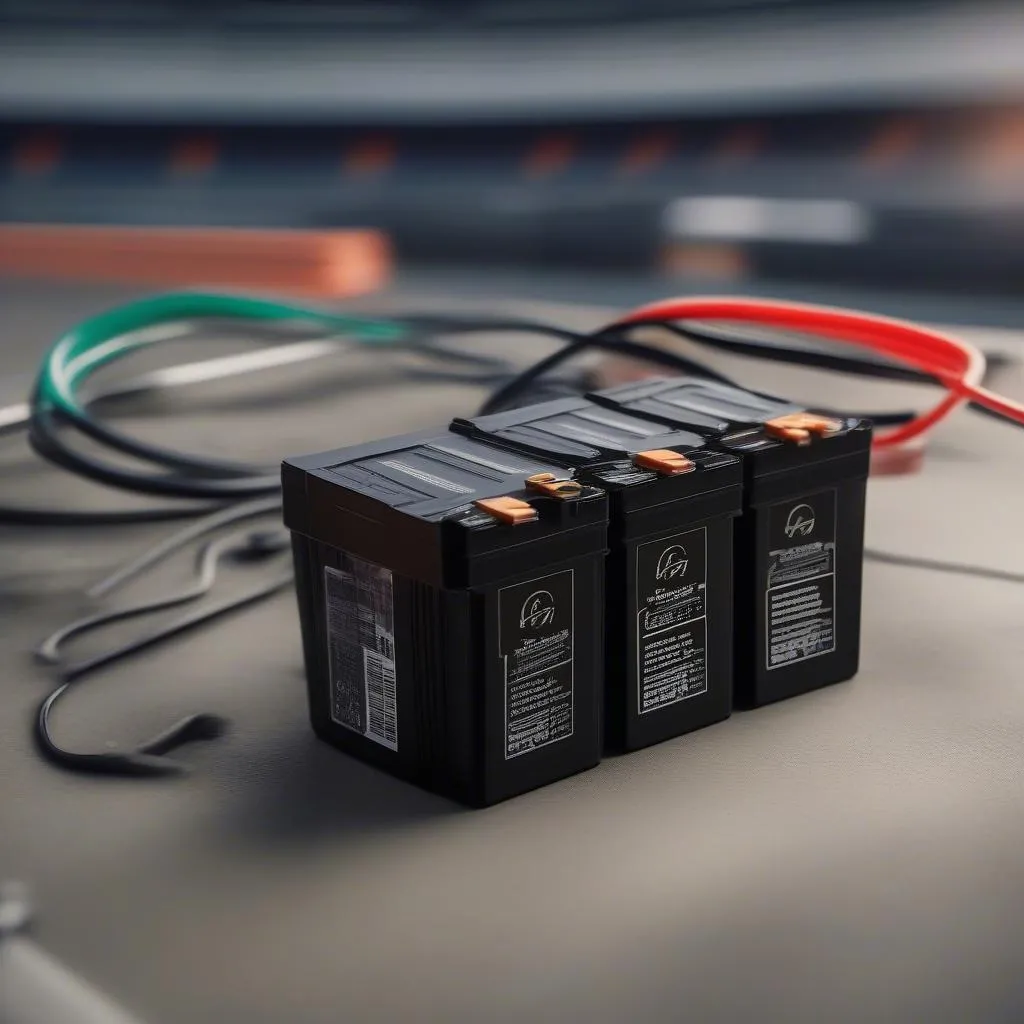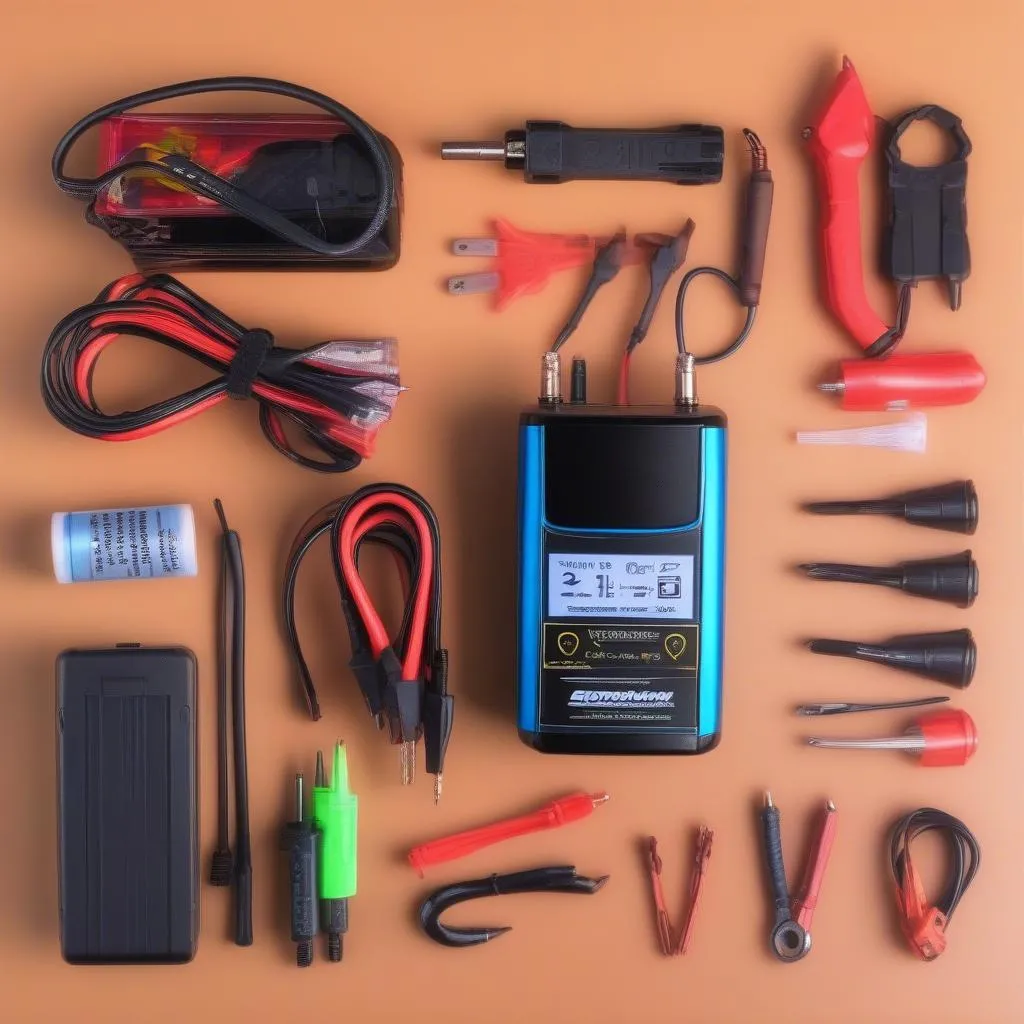Remember that time you were a kid, eyes glued to your remote-controlled car, pushing its limits across the living room floor? The thrill of the race, the adrenaline pumping as you maneuvered around obstacles – it all came to a screeching halt when the battery died. 😩
Yep, we’ve all been there. The heart of your RC car, its source of power and speed, lies in its battery. And when it comes to RC car batteries, 7.2V packs are a popular choice. But what makes them so special? Let’s dive in!
7.2V RC Car Battery: What’s the Big Deal?
Before we jump into the specifics, let’s break down what “7.2V RC car battery” actually means from different perspectives:
The Mechanic’s View:
“For most hobbyists, a 7.2V battery strikes a good balance. It packs enough punch for decent speed and torque without putting too much strain on the motor.” says John Smith, a seasoned RC car mechanic based in Austin, Texas. “Plus, they are widely compatible with a range of RC car models.”
The Technical Take:
A 7.2V battery typically consists of six individual 1.2V cells connected in series. This configuration delivers a nominal voltage of 7.2V, providing ample power for most entry-level to intermediate RC cars.
The Budget-Conscious Enthusiast:
Compared to higher voltage options, 7.2V batteries often come at a more affordable price point, making them an attractive option for those looking for a balance between performance and value.
Powering Up Your Ride: Decoding the 7.2V Battery
So, you’ve got your 7.2V battery. Now what?
Understanding Battery Capacity (mAh)
The next crucial factor to consider is the battery’s capacity, measured in milliampere-hours (mAh). Think of it like the fuel tank of your RC car. A higher mAh rating translates to a larger “fuel tank” and a longer runtime before needing a recharge.
- For casual backyard bashing, a battery with 3000mAh or higher should provide a decent amount of playtime.
- If you’re into more intense racing or longer off-road adventures, you might want to consider batteries with 5000mAh or even higher.
Choosing the Right Battery Type
7.2V RC car batteries are available in various chemistries, each with its pros and cons:
- Nickel-Cadmium (NiCd): These are the old workhorses. They are durable, can handle high discharge rates, and are relatively inexpensive. However, they have a lower capacity compared to newer chemistries and suffer from the “memory effect.”
- Nickel-Metal Hydride (NiMH): NiMH batteries offer higher capacity than NiCd and don’t suffer from the memory effect as severely. They are a good all-around choice for most users.
- Lithium Polymer (LiPo): These are the high-performance athletes of the battery world. LiPo batteries offer the highest energy density, providing more power and runtime in a lighter package. However, they require special chargers and care to ensure safe operation.
Maintaining Peak Performance
Just like any other component, your RC car battery needs proper care to ensure optimal performance and longevity:
- Always use a compatible charger: Using the wrong charger can damage your battery and even pose safety hazards.
- Don’t overcharge or over-discharge: Follow the manufacturer’s guidelines for charging and discharging your battery.
- Store your batteries properly: Store your batteries in a cool, dry place, away from direct sunlight and extreme temperatures.
Troubleshooting Common 7.2V Battery Issues
Experiencing issues with your 7.2V battery? Here are a few common culprits and how to address them:
- Short runtime: This could be a sign of an aging battery or a battery with insufficient capacity for your RC car’s demands. Consider replacing the battery with a new one with a higher mAh rating.
- Battery not charging: Ensure you are using the correct charger and that the battery is properly connected. If the issue persists, the battery or charger may be faulty.
- Swollen battery: This is a serious issue that should not be ignored. A swollen battery is a safety hazard and should be disposed of properly. Never attempt to use or charge a swollen battery.
Frequently Asked Questions (FAQs)
Here are some common questions RC car enthusiasts have about 7.2V batteries:
Q: Can I use a higher voltage battery in my RC car that came with a 7.2V battery?
A: It’s generally not recommended. While a higher voltage battery might seem appealing for more power, it can overload and damage your car’s electrical components, including the motor and speed controller.
Q: How long does it take to charge a 7.2V RC car battery?
A: Charging times vary depending on the battery’s capacity and the charger’s output current. Always refer to the manufacturer’s instructions for specific charging times.
Q: Can I leave my 7.2V battery connected to the charger overnight?
A: It’s best to avoid leaving any battery unattended while charging. Overcharging can shorten the lifespan of the battery and potentially lead to safety hazards.
Exploring the World of RC Car Batteries
Want to delve deeper into the world of RC car batteries? Check out these related resources:
- 7.2 Powerstroke OBD 2 Bluetooth Plug – Explore the world of advanced diagnostics for your vehicles.
Need Expert Help with Your RC Car?
We understand that tinkering with electronics can be tricky! If you’re facing challenges with your RC car batteries or need expert assistance, don’t hesitate to contact us on WhatsApp at +84767531508. Our team of automotive specialists is available 24/7 to help you get back on track and enjoy the thrill of the ride!
 RC car battery 7.2V
RC car battery 7.2V
 Charging an RC car battery
Charging an RC car battery
Remember, choosing the right battery and caring for it properly are crucial for maximizing your RC car’s performance and extending its lifespan. Happy racing!